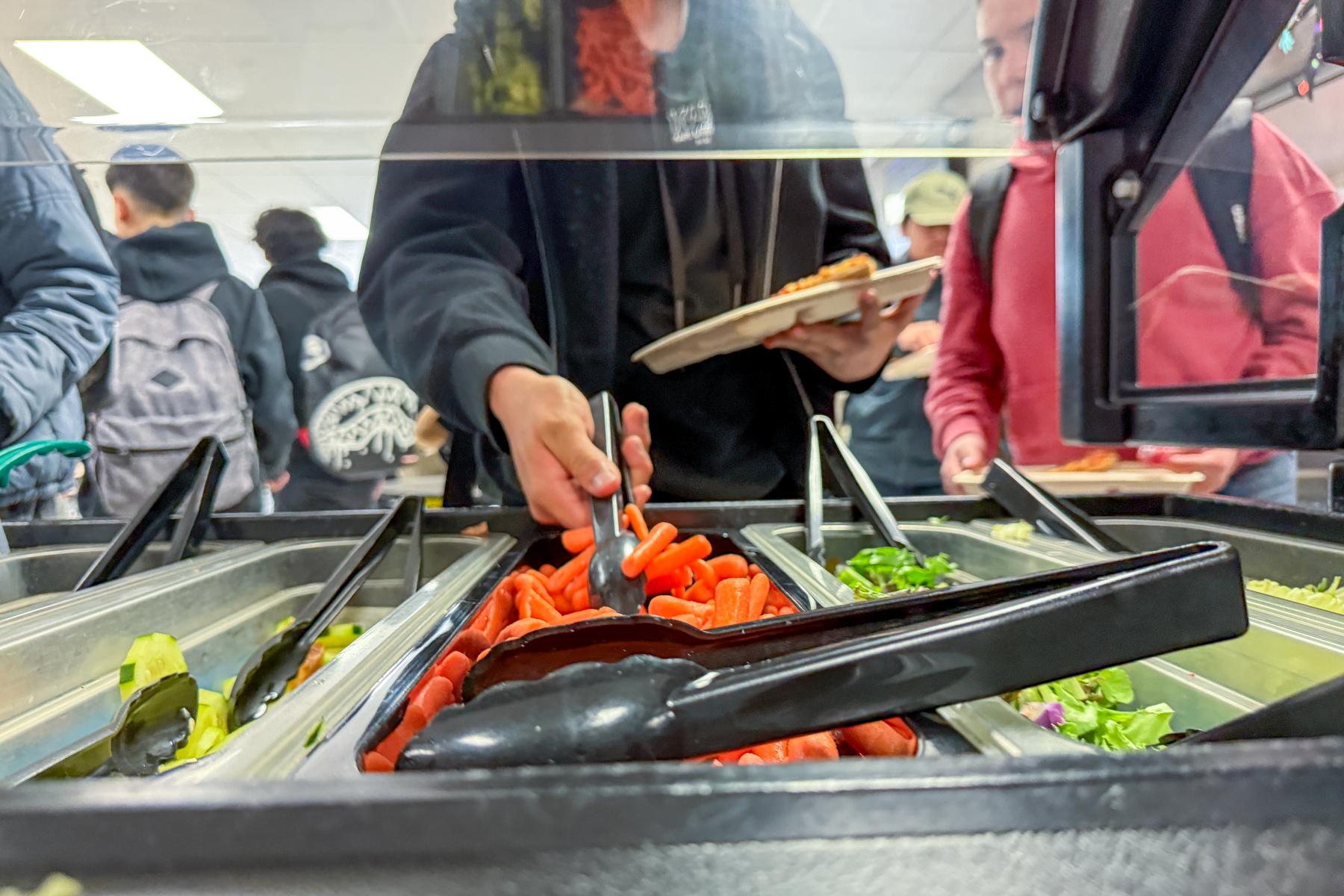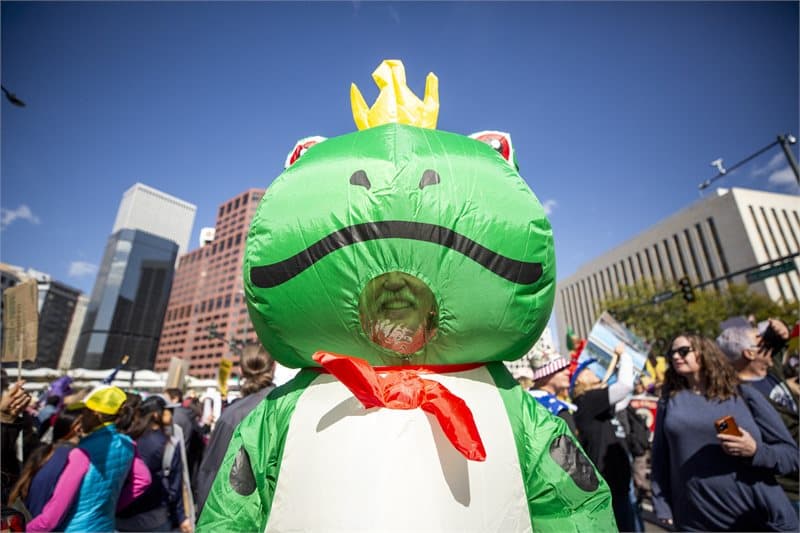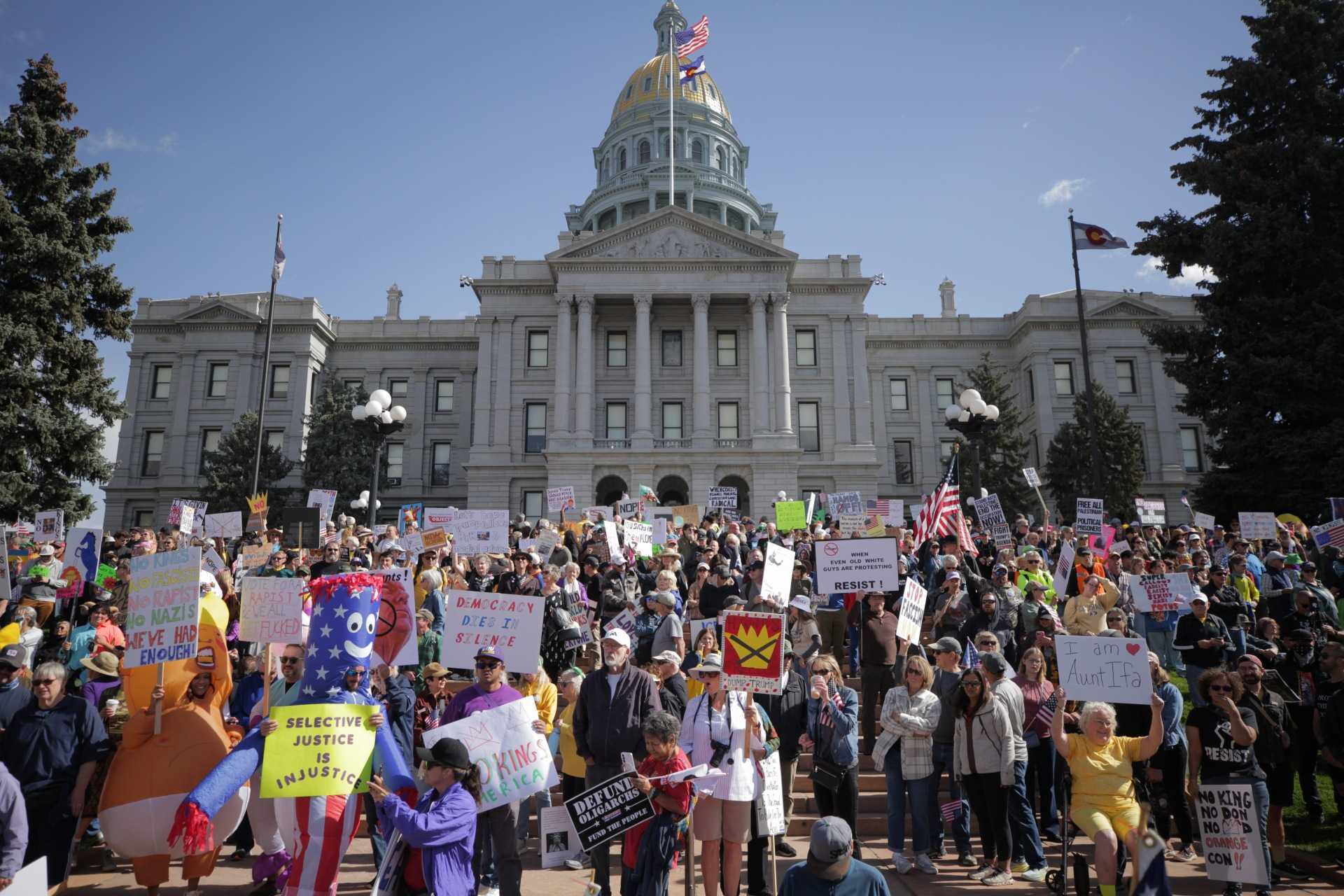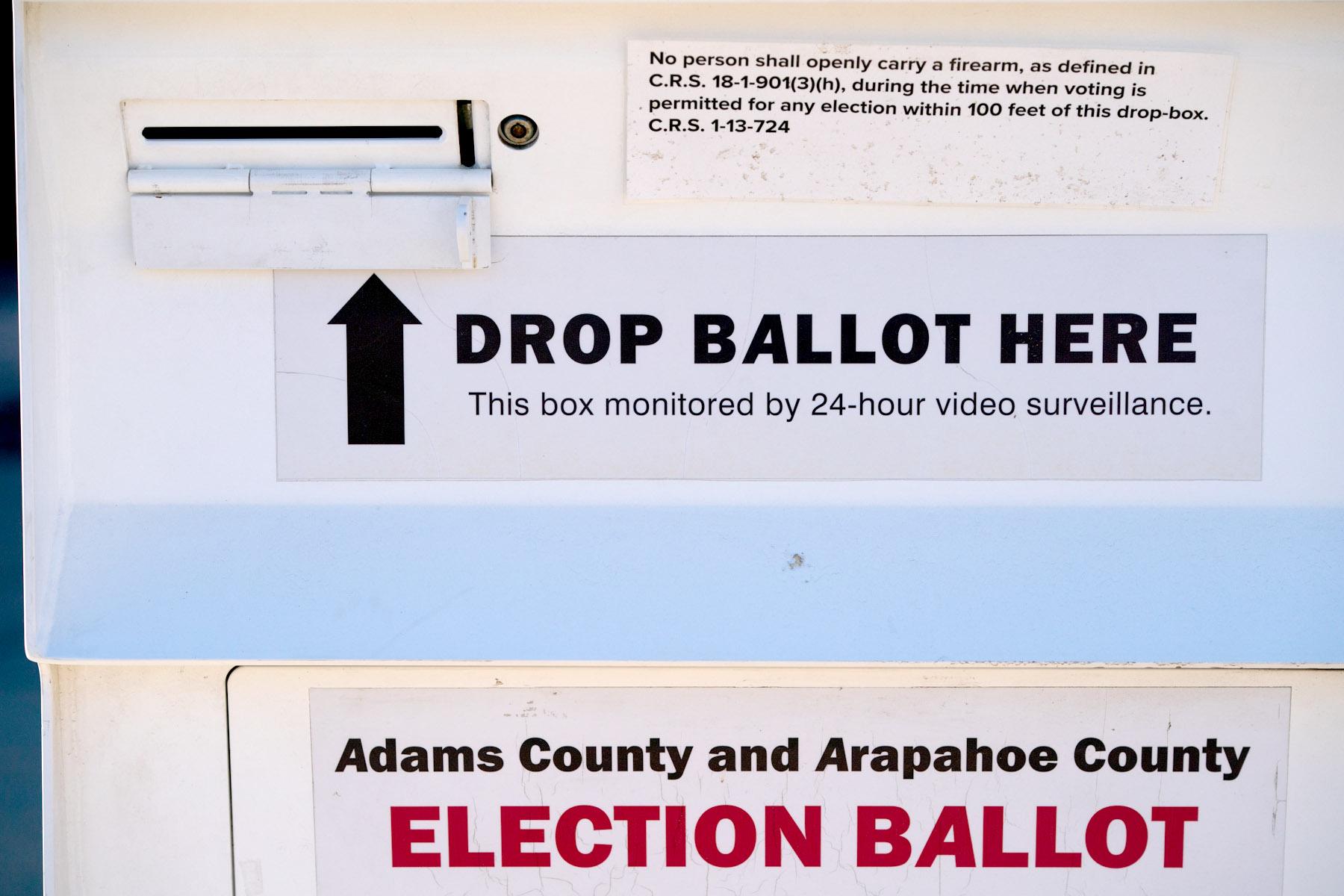
An election that has taken months of effort from candidates and volunteers, cost millions of dollars, and has the potential to touch everyone in the state is now just hours from its conclusion.
Today, voters will decide who will serve as governor, attorney general, secretary of state and treasurer for the next four years.
Colorado holds elections for statewide offices in the off-years of the presidential cycle. That means the stage for this contest was set four years ago, when a blue wave midterm gave Democrats full control of all statewide positions, as well as both chambers of the legislature.
Now, the party hopes to cement those gains as four incumbents try for their second — and thanks to term limits — final terms.
However, with inflation squeezing household budgets, crime weighing on voters’ minds and an unpopular Democratic president in Washington, Republicans hope to turn the tide and return Colorado to its purple reputation. A recent NPR poll showed that voters gave Republicans a 20 point lead on Democrats when it came to which party was better equipped to handle inflation.
After the strange pandemic-inflected election of 2020, candidates have returned to shoe-leather campaigning. In the past week, public events have come thick and fast on both sides as the hopefuls have crisscrossed the state, hoping to shake as many hands and win as many hearts as possible.
Key races could tilt Congress, or reshuffle power in Denver
Several congressional races could be key to which party controls Congress.
The Senate race between incumbent Democrat Michael Bennet and businessman Joe O’Dea is listed as a potential Republican pick-up opportunity, should the party have an exceptionally good night. However, the contest never attracted the kind of mega money national groups have poured into the hottest races — such as Georgia or Pennsylvania.
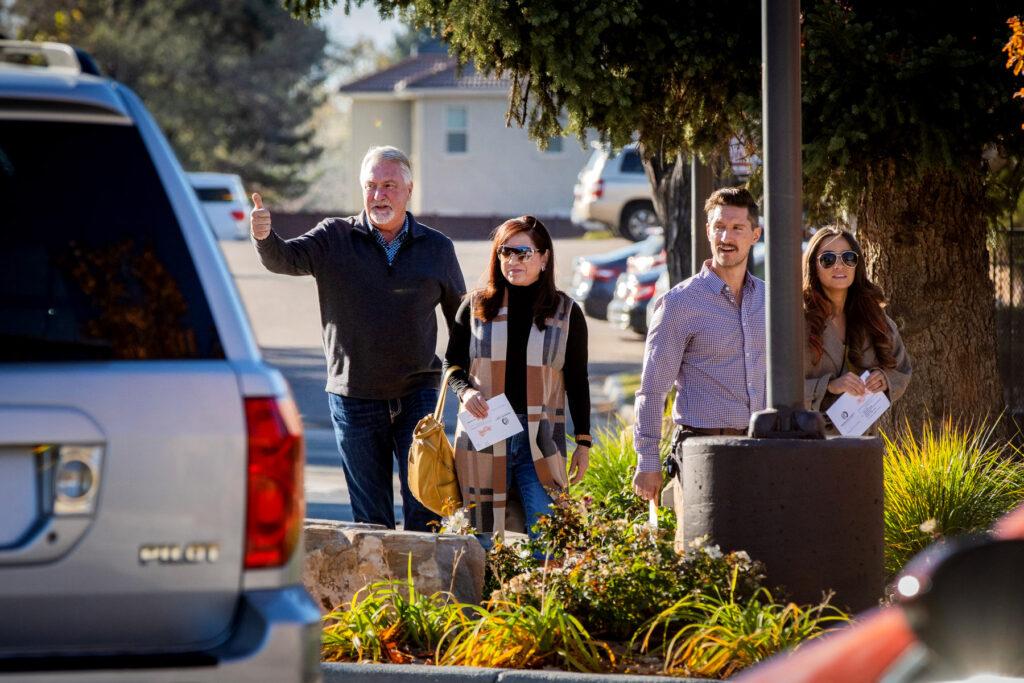
The real drama of the night may end up in the House.
Colorado’s new 8th congressional district was drawn by the state’s redistricting commission to be extremely competitive — a rare distinction in an era of increasingly polarized maps. Two state lawmakers are vying to be the first to represent it, GOP state Sen. Barbara Kirkmeyer and Democratic Rep. Yadira Caraveo.
With Republicans needing only five seats to take the majority in the House, the result in CO-8 could be crucial.
Republicans also started the year hopeful they might flip the 7th congressional district; redistricting narrowed Democrats’ advantage there to just seven points and Rep. Ed Perlmutter’s retirement left the field wide open. However, as with O’Dea, national GOP groups have not generally sat out the contest between military veteran Eric Aadland and his Democratic opponent, Brittany Pettersen.
In the governor’s race, incumbent Jared Polis is being challenged by CU regent Heidi Ganahl. The contest has exposed some surprising parallels between the two — their mutual dislike of the income tax and shared belief that Colorado needs to build its way out of climbing housing costs — while also making it clear they stand on opposite sides of cultural fault lines around gender, education and abortion.
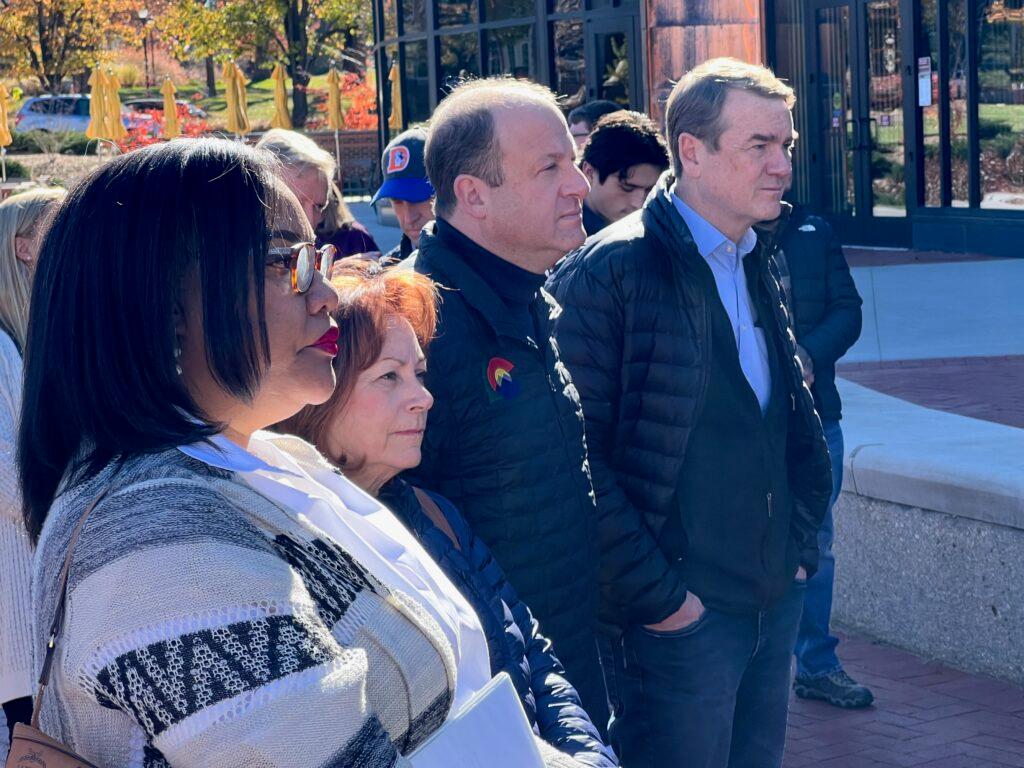
Unlike many other states, the GOP slate in Colorado is drawn solidly from the party’s establishment. In the Attorney General’s race, John Kellner, the district attorney in Aurora, is challenging incumbent Phil Weiser. For Secretary of State, a former head of the county clerk’s association, Pam Anderson, is taking Jena Griswold. And former state Rep. Lang Sias hopes to oust Treasurer Dave Young; the two men were on good terms when they served together in the House.
Turnout has been slow, but Election Day could change that
By dawn on Monday, 1.3 million Coloradans had returned their ballots, representing 35 percent of the state’s active voters. Those numbers lagged turnout at this point in the 2018 midterms by 277,000 voters.
Unaffiliated voters make up the largest group returning ballots, followed by Democrats and then Republicans.
As with midterms traditionally, the electorate so far has skewed older than the general population. Nearly 41 percent of ballots returned have come from voters aged 65 and older.
The slow returns could be due to a range of causes. The results in 2018 suggested many Coloradans were eager to show their disapproval of president Trump, although he wasn’t on the ballot. The state’s increasingly blue lean may mean there are fewer conservative voters ready to send the same message about Biden. And some prominent figures on the right, both in Colorado and nationally, have been urging Republicans to wait until Election Day to return their ballots.
The length of the ballot may also have some voters procrastinating until the final deadline, with 11 statewide measures and numerous complex local issues up for a vote too.
The deadline for mailing back ballots is long past — any delivered by the post office after today won’t be counted — but Vote Centers and ballot drop boxes will be open until 7 p.m. tonight across Colorado. Voters who aren’t yet registered can still get signed up and cast a ballot until that deadline.

